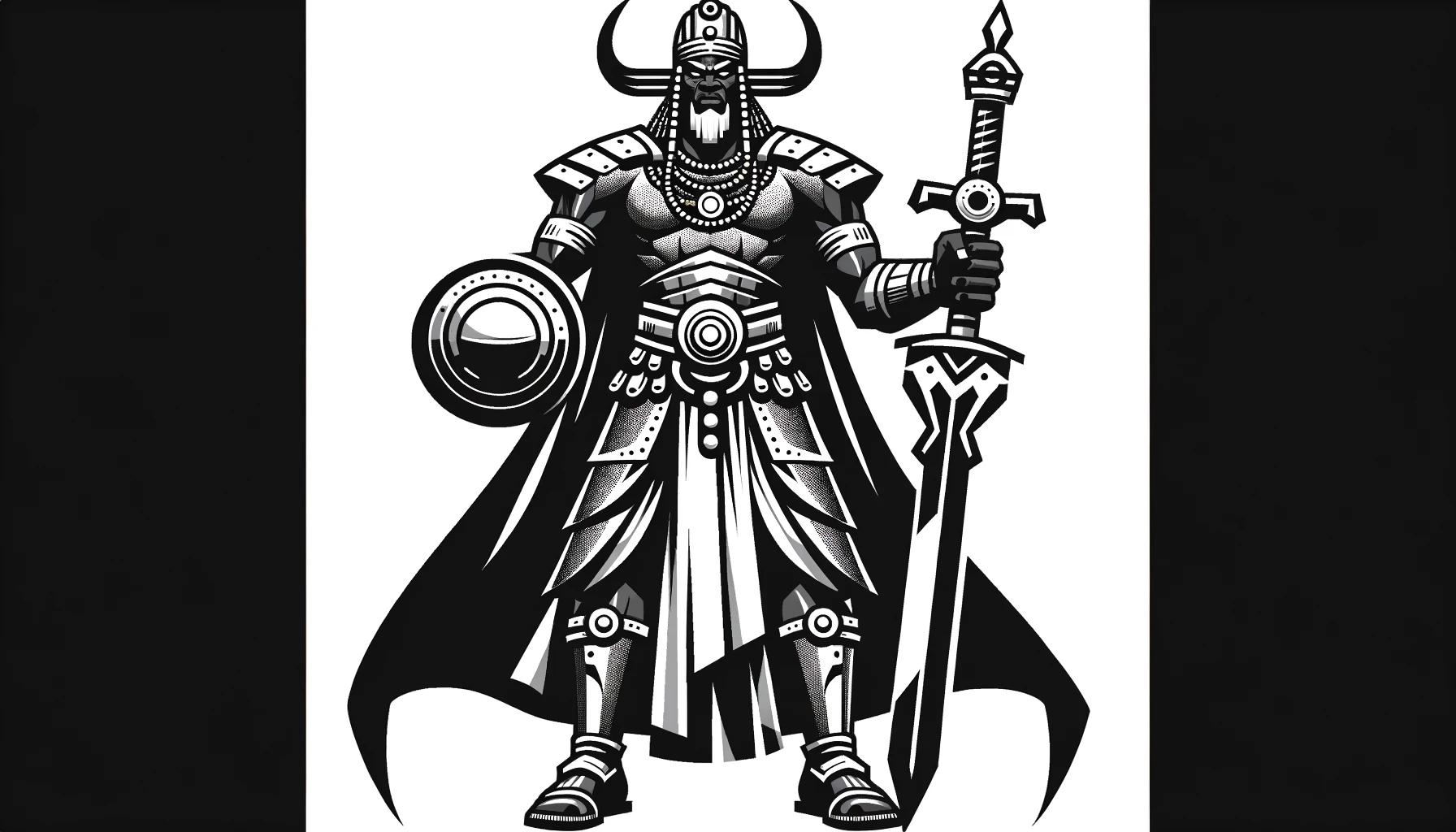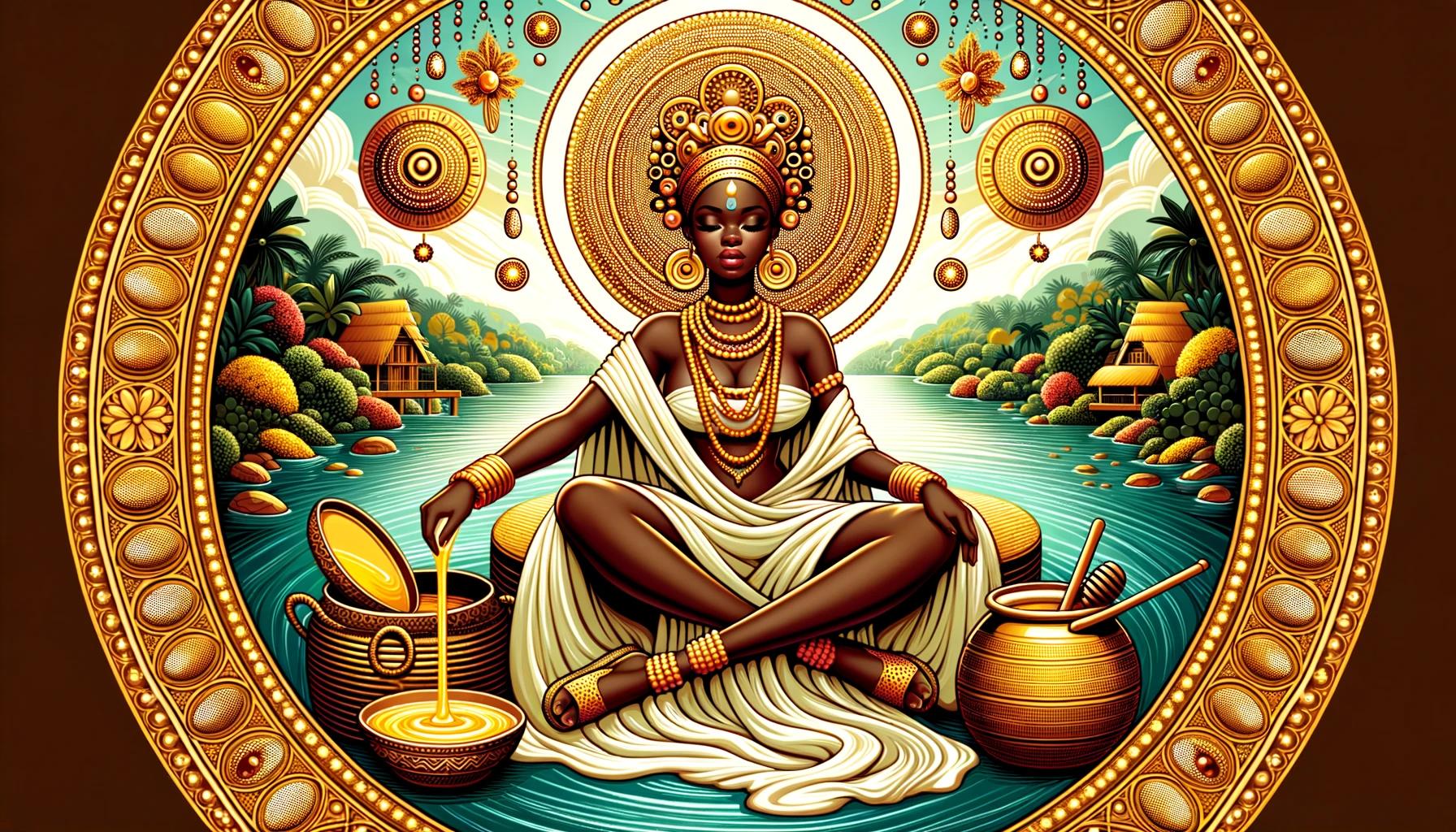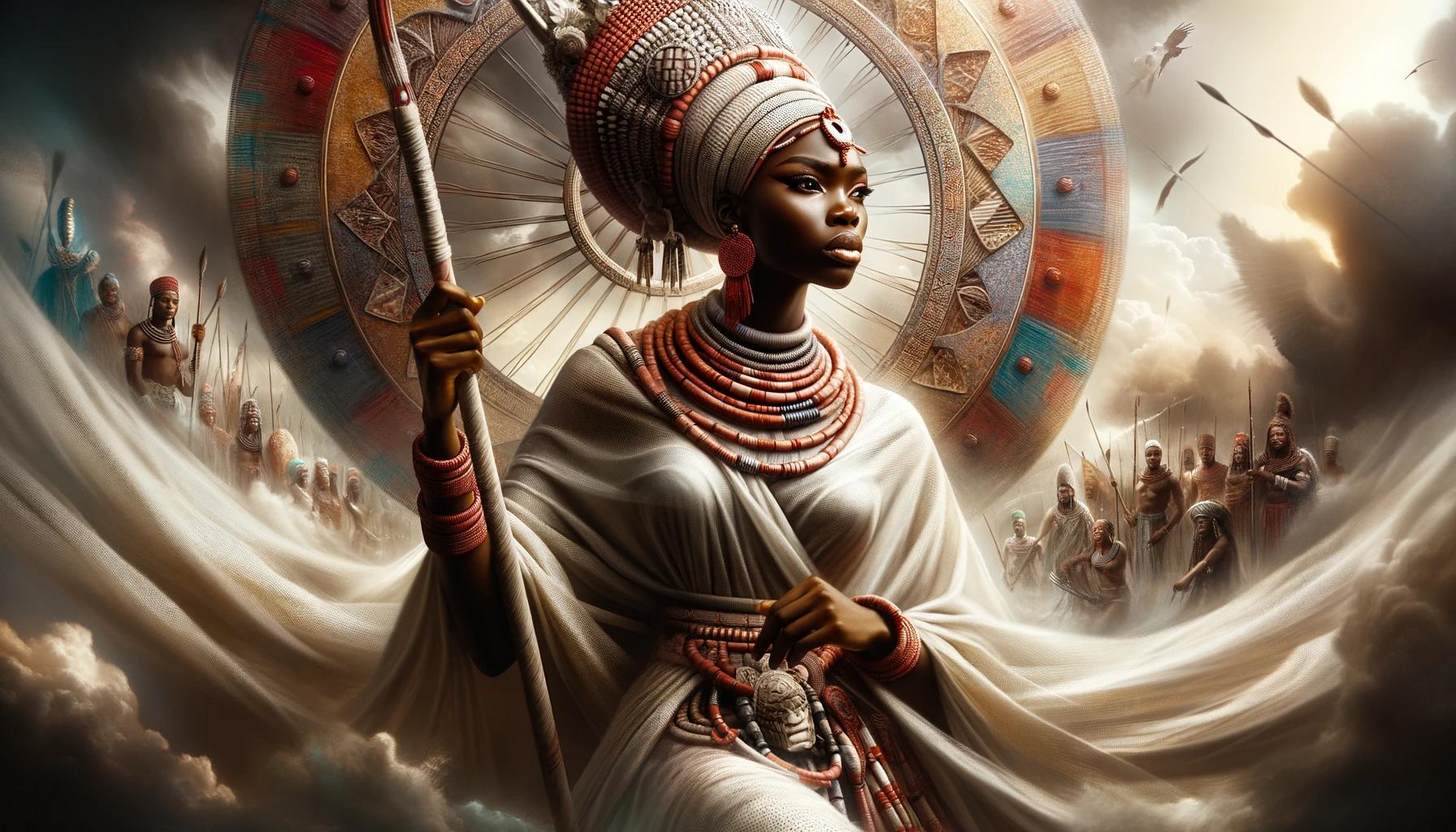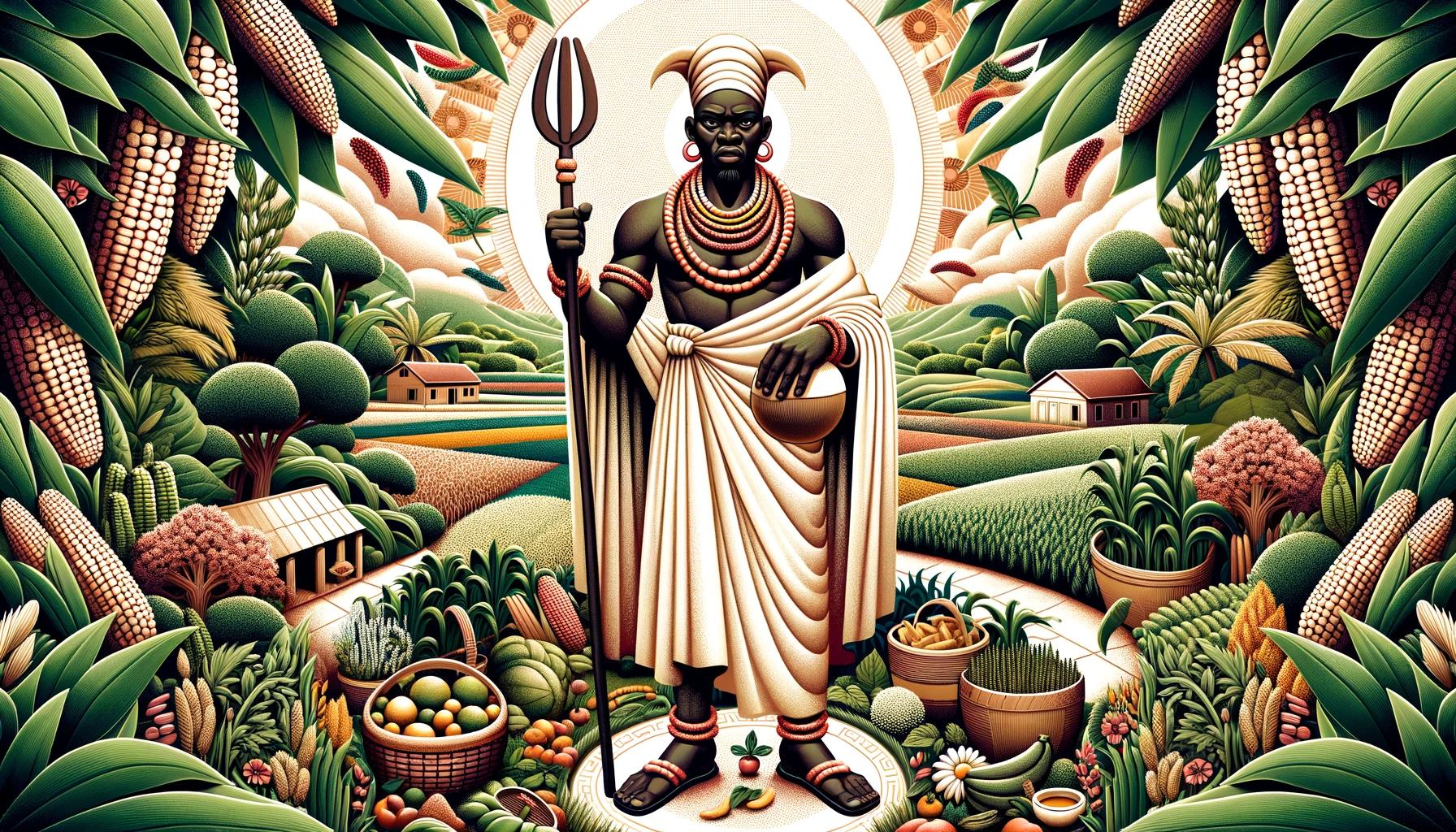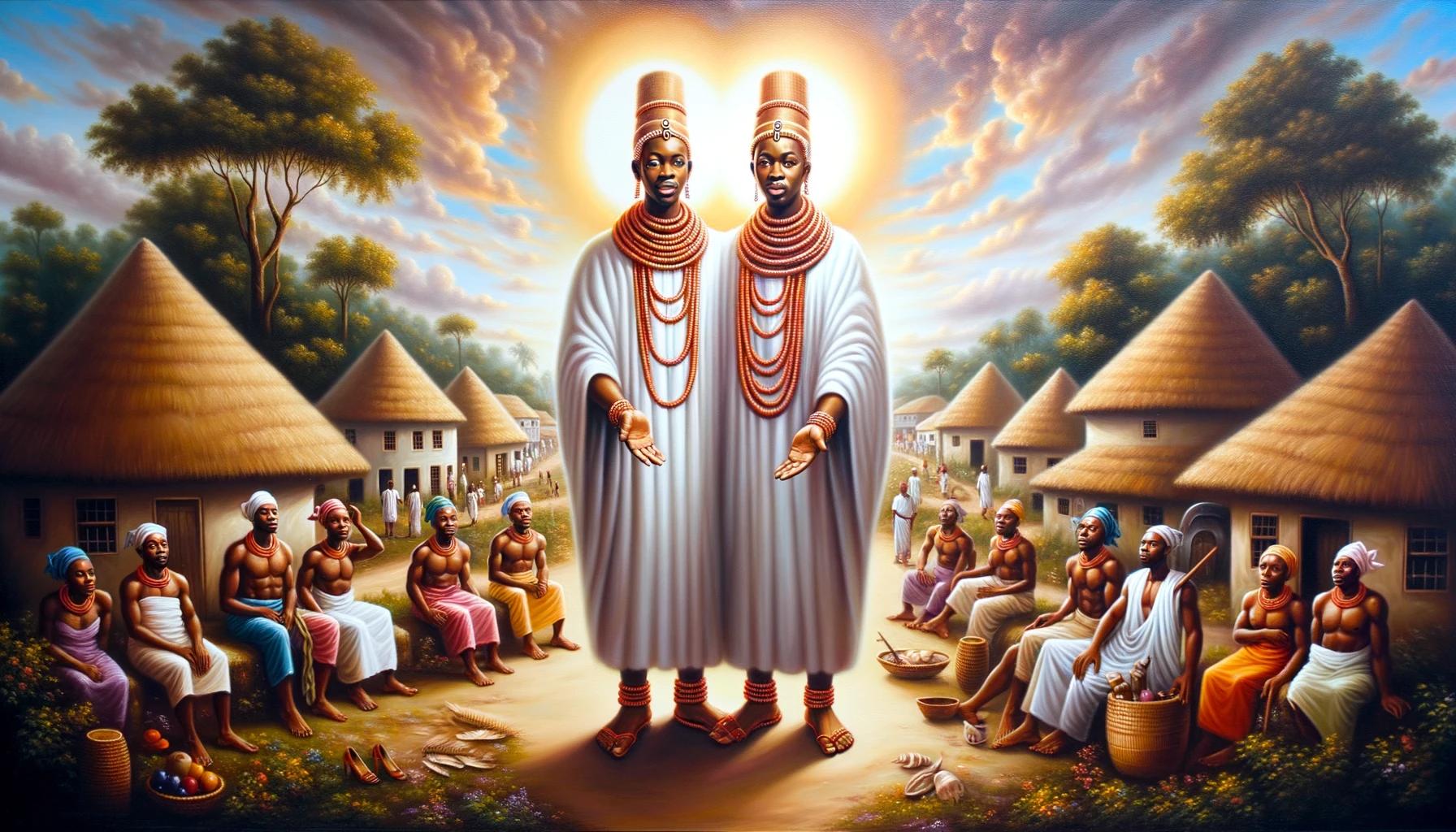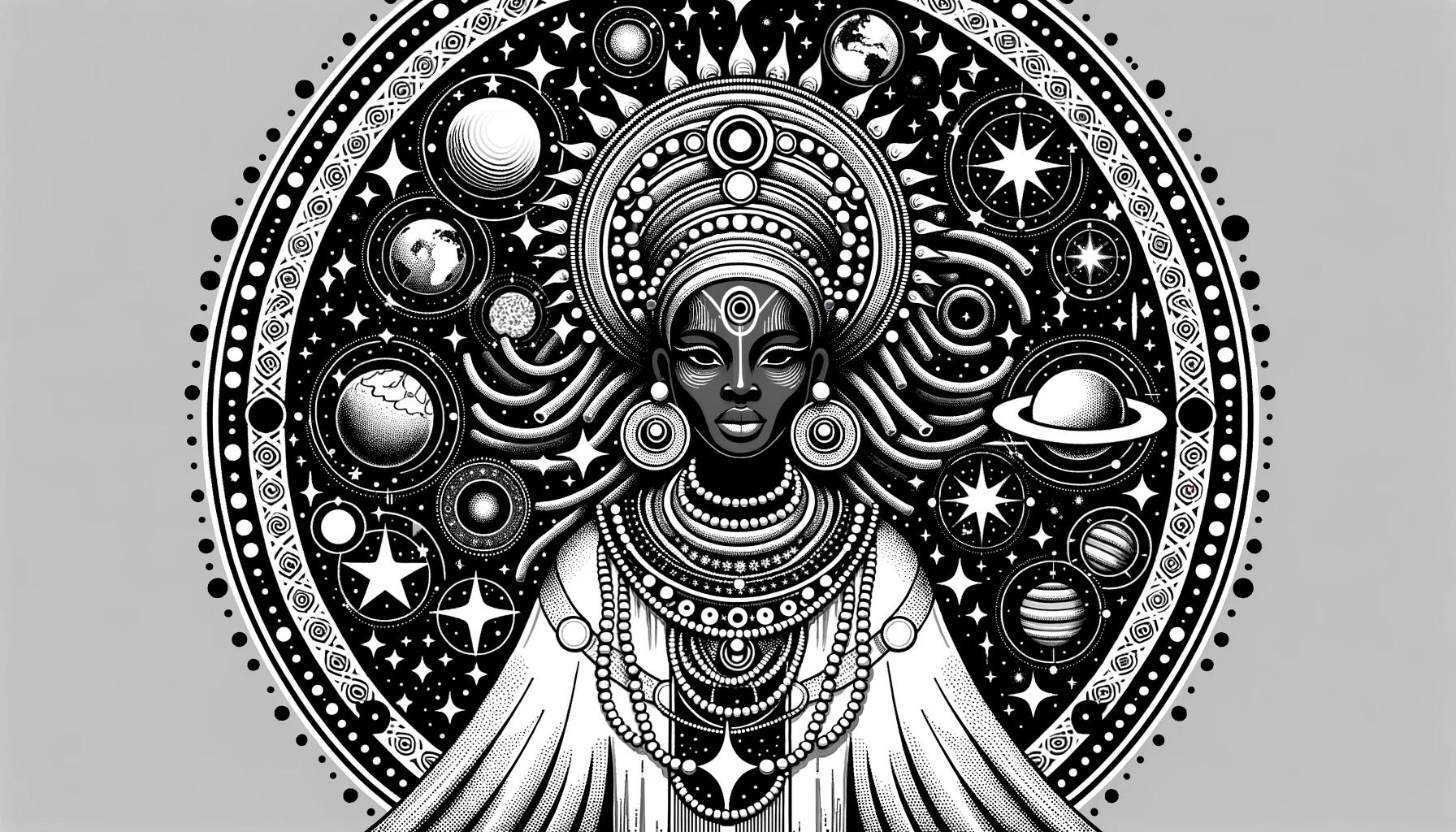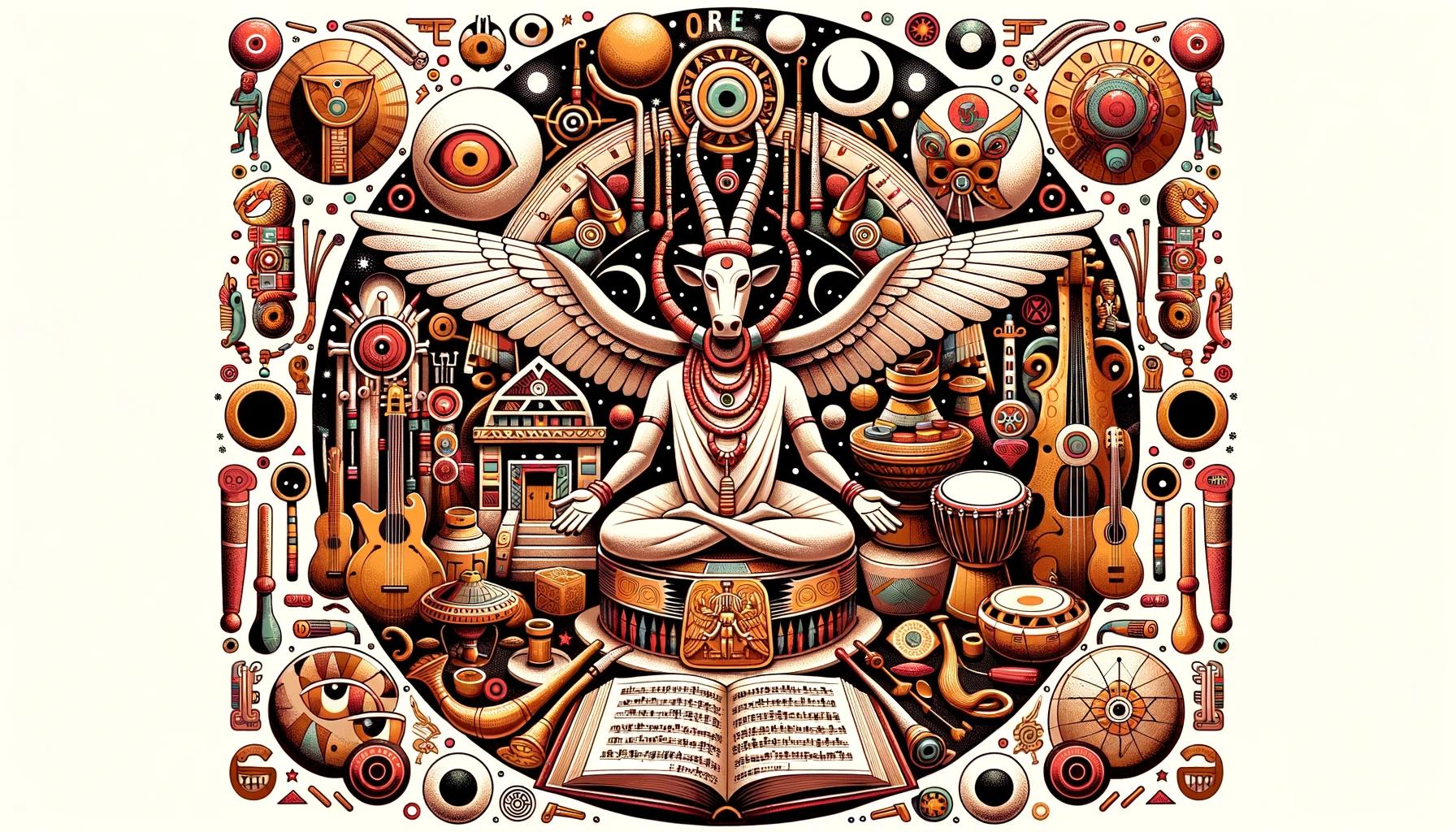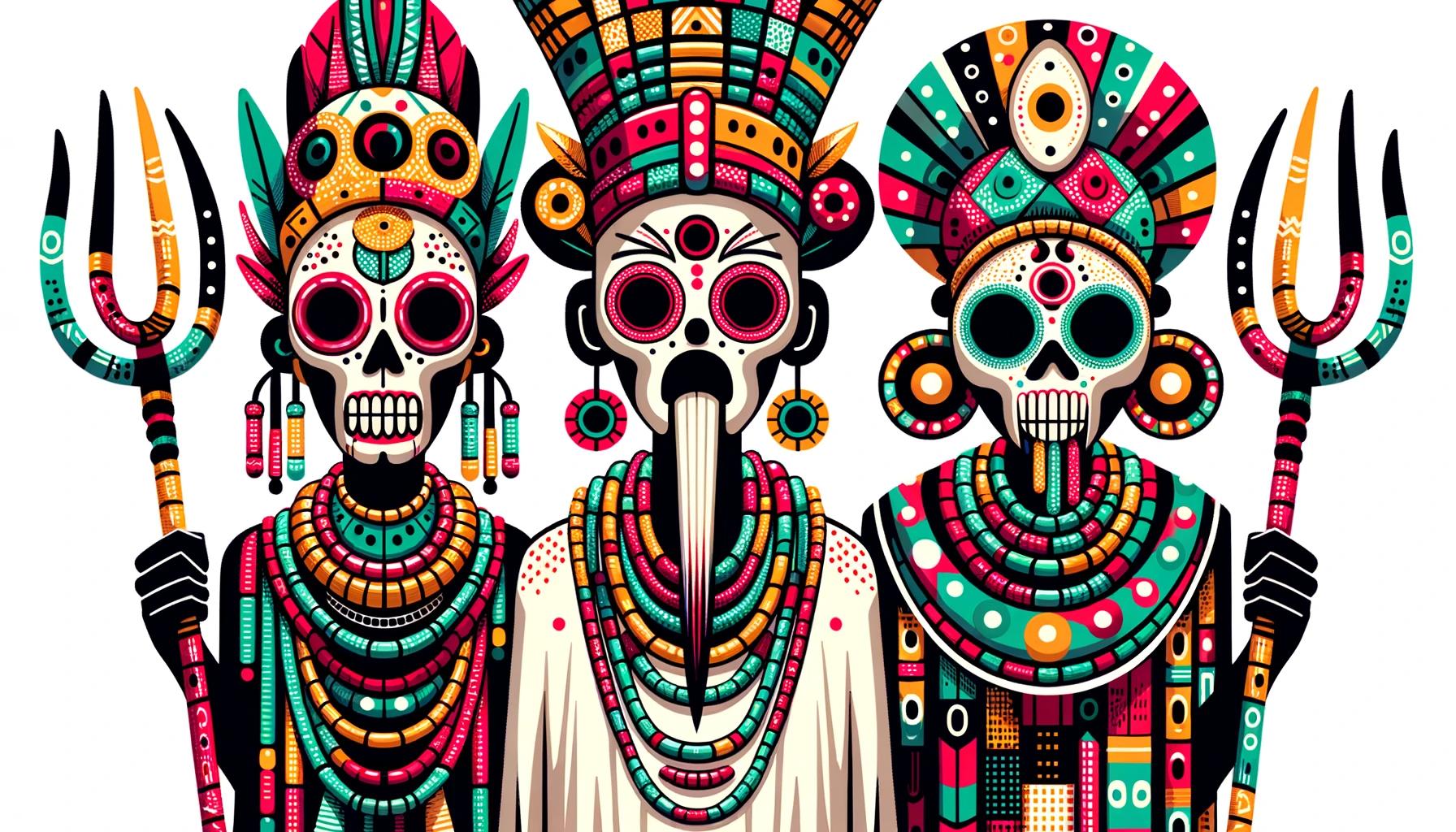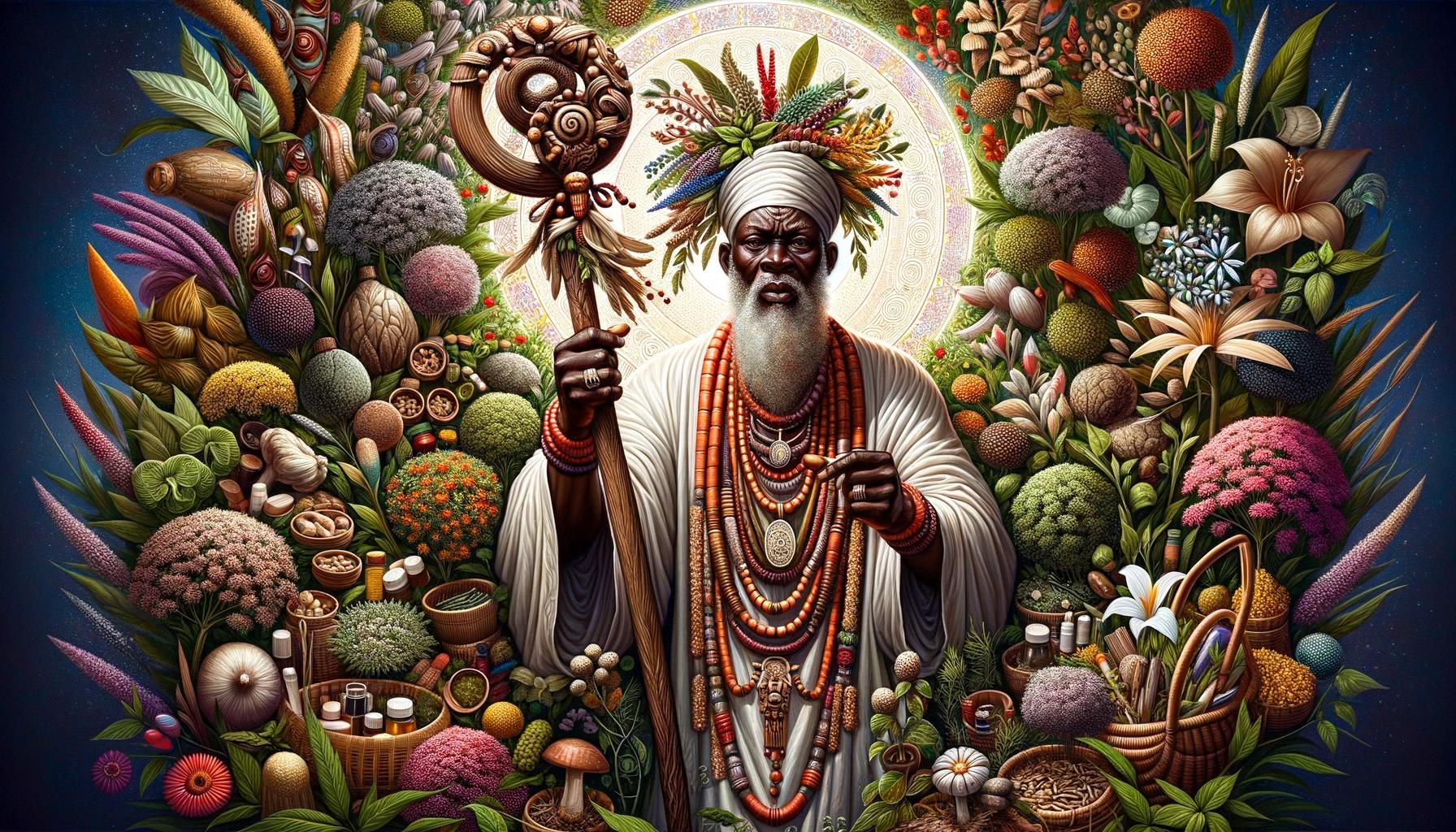Ogun: The Powerful Deity of War and Iron in African Religions
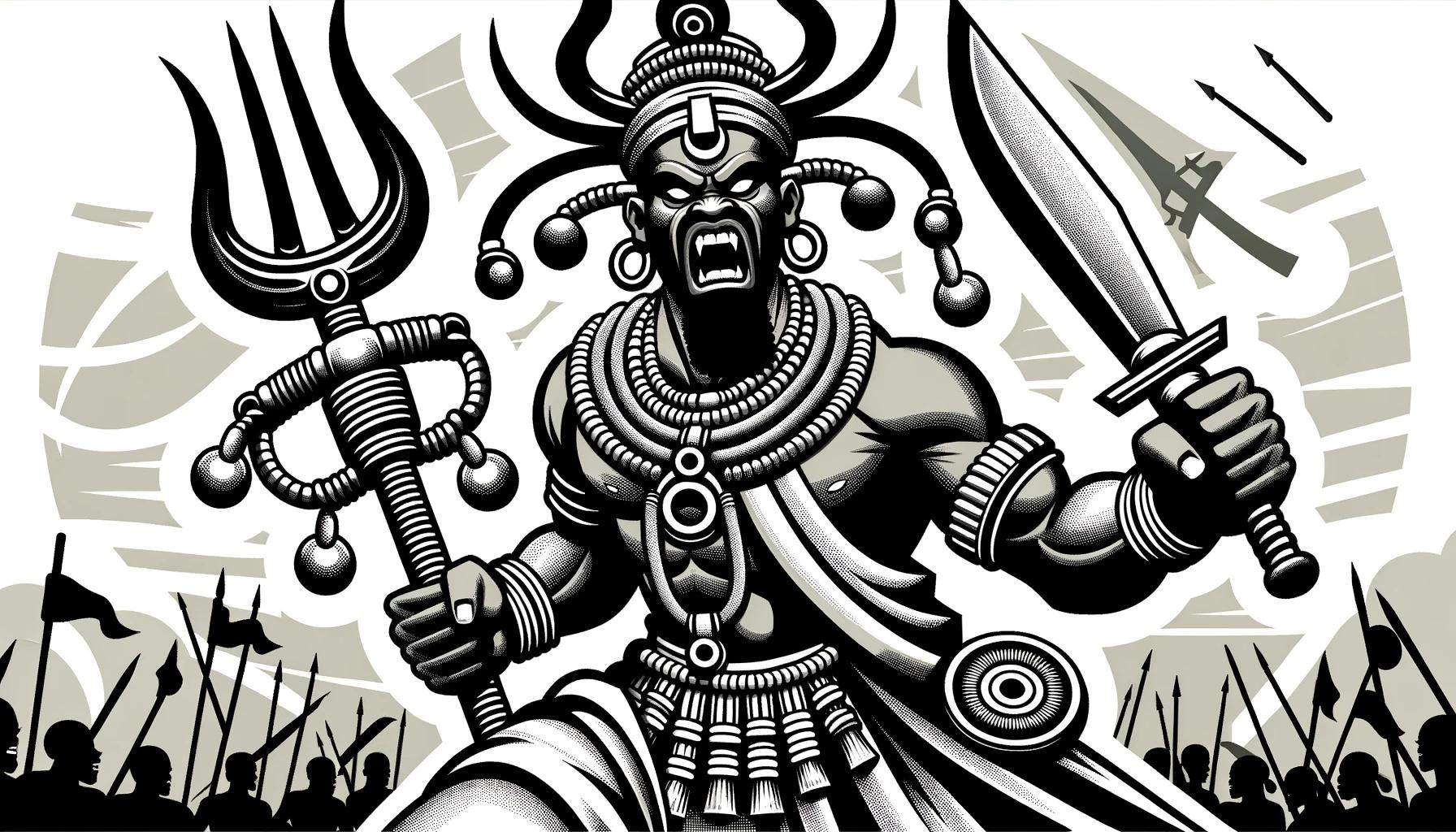
Ogun god of war and iron is a powerful deity revered in African religions. As the god of war and iron, Ogun holds significant importance in shaping human connections and spiritual energies.
This deity’s multifaceted nature is characterized by his role as a creator, warrior, and catalyst for the human spirit. Ogun’s symbolism extends beyond African religions, found in various cultures such as the Dahomey and Ewe religions, Candomblé, Santería, Palo, and Voodoo.
Understanding Ogun’s significance offers insights into the complexity and enduring relevance of this deity in contemporary society.
Overview of Ogun: God of War and Iron
Ogun, the fearsome and revered deity, holds a significant place in African religions. As the god of war and iron, Ogun’s mythology and symbolism embody power, strength, and resilience. In this overview, we delve into Ogun’s pivotal role in African cultures and beliefs, exploring his presence in religious practices and the impact he has had on society for centuries.
Ogun in African Religions
In various African religions, Ogun is highly regarded as a primordial orisha, or divine force. He finds prominence in the Yoruba religion, where he holds a central position among other deities.
Ogun’s role as a creator and warrior is deeply rooted in Yoruba cosmology, shaping the spiritual and cultural traditions of the region. His influence extends beyond Yoruba religion, as he is also present in the Dahomey, Ewe, Candomblé, Santería, Palo, and Voodoo traditions.
Significance of War and Iron in Ogun’s Mythology
War and iron play essential roles in Ogun’s mythology, symbolizing his domains of power and influence. As the god of war, Ogun represents the forceful and protective nature required to defend communities and ensure their survival.
Iron, on the other hand, embodies Ogun’s connection to craftsmanship, technology, and the ability to shape and transform worlds. Through these symbols, Ogun reflects the duality of creation and destruction, emphasizing his complex and multifaceted nature.
Impact of Ogun on African Culture and Beliefs
Ogun’s presence has left an indelible mark on African culture and beliefs. His portrayal as a powerful deity has inspired and influenced various aspects of society, ranging from art, literature, and music to the practices of warriors, hunters, blacksmiths, technologists, and drivers.
Ogun’s devotees display their loyalty by kissing a piece of iron in his name and wear amulets for protection. The rituals, offerings, and ceremonies honoring Ogun symbolize the reverence and appreciation for his role in African traditions.
Ogun’s Role as a Creator and Warrior
Ogun, the god of war and iron, plays a significant role in shaping human connections and is regarded as a powerful deity in African religions. Let’s explore Ogun’s role as a creator and warrior, delving into the theme of human connections, the symbolism of forging metal, and Ogun’s role as a protector and guardian of agreements.
Ogun’s Creation of Human Connections
In African religions, Ogun is associated with the forging of strong and solid human connections. Handshakes, blood oaths, and other forms of agreements symbolize trust, promises, and commitments, all of which are facilitated and guarded by Ogun.
These connections are essential for building relationships and fostering harmony within communities.
The Symbolism of Forging Metal in Ogun’s Role
In Ogun’s role as a creator and warrior, the symbolism of forging metal takes center stage. Just as metal is shaped and solidified through intense heat and pressure, so too are human connections forged and solidified through shared experiences, challenges, and agreements.
Ogun’s influence is reflected in the strength and durability of these connections, which stand the test of time.
Ogun as a Protector and Guardian of Agreements
As a deity associated with war and iron, Ogun assumes the role of a protector and guardian of agreements. Ogun ensures that promises and commitments made between individuals are upheld, and he takes action against any breaches of trust or dishonorable actions.
Ogun’s presence serves as a reminder of the importance of integrity, loyalty, and honoring one’s word.
- Ogun shapes and solidifies human connections through trust and agreements.
- Forging metal symbolizes the strength and durability of these connections.
- Ogun serves as a protector and guardian of agreements.
Within African religions, Ogun’s role as a creator and warrior holds immense significance.
His influence shapes and reinforces human connections, symbolized by the forging of metal. As a protector and guardian of agreements, Ogun ensures the integrity and loyalty among individuals. Understanding Ogun’s multifaceted role deepens our appreciation for the complexities and significance of this deity in African culture and beliefs.
Ogun’s Connection to the Spiritual Realm
Ogun, the god of war and iron, holds a significant role as a catalyst for spiritual energy and passion. In African religions, Ogun is believed to ignite the fire within the human spirit, driving individuals towards their goals and desires.
Just as fire provides heat, warmth, and light, Ogun’s presence sparks the ignition of these spiritual energies, infusing them with power and vitality.
Ogun’s Presence and Influence on the Human Spirit
With Ogun’s influence, individuals are empowered to pursue their passions, overcome challenges, and channel their inner strength.
Ogun is seen as a guiding force, inspiring individuals to tap into their potential and achieve greatness. His presence serves as a reminder of the inherent power within each human spirit, encouraging individuals to harness their energy and pursue their dreams with determination.
Symbolism of Fire in Ogun’s Spiritual Role
Fire symbolizes the intensity, transformation, and purification associated with Ogun’s spiritual role. Just as fire consumes and purifies, Ogun’s presence signifies the burning away of obstacles and negativity, allowing individuals to evolve and grow spiritually.
Fire also represents the passion and drive that motivates individuals on their spiritual journey, providing the energy needed to overcome challenges and embrace personal transformation.
Key Points:
- Ogun serves as a catalyst for spiritual energy and passion, igniting the fire within individuals.
- His presence inspires individuals to tap into their potential and pursue their goals with determination.
- Fire symbolizes the intensity, transformation, and purification associated with Ogun’s spiritual role.
- Through the symbolism of fire, Ogun signifies the burning away of obstacles and the energy required for personal growth.
The Complexity of Ogun: Creator and Solitary Figure
Ogun, the god of war and iron, embodies a complex nature that encompasses both creation and destruction.
His dual role as a creator and destroyer highlights the intricacies of his character and the paradoxes within. Ogun’s ability to shape and forge human connections is matched by his capacity for destruction and transformation.
Ogun’s Dual Nature as Creator and Destroyer
In the mythology surrounding Ogun, he is credited with the power to both create and destroy. As a skilled blacksmith, Ogun forges the tools and weapons used in war, highlighting his role as a force of destruction.
However, this destructive power also serves as a catalyst for new beginnings and facilitates transformation and growth. Ogun’s ability to bring destruction and creation together showcases the complexity of his character.
Ogun’s Detachment and Distance from Human Society
Despite being a powerful and influential deity, Ogun is often depicted as a solitary figure, detached from human society. His detachment is symbolic of his independence and self-reliance, reflecting his role as a solitary warrior.
Ogun stands apart from human affairs, embodying a sense of individualism and self-sufficiency. This detachment contrasts with his role as a creator and facilitator of human connections, further emphasizing the complexities within his character.
Contradictions and Paradoxes in Ogun’s Character
Ogun’s character is marked by contradictions and paradoxes. He is both a creator and a destroyer, a protector and a solitary figure. These contradictions reflect the intricate nature of life itself, where opposites can exist in harmony.
Ogun’s ability to embody these contradictory aspects demonstrates his role as a symbol of the complexities and contradictions present in the human experience.
Understanding the multifaceted nature of Ogun allows us to appreciate the depths of his character and the significance of his symbolism.
As a deity associated with war and iron, Ogun’s complexity mirrors the complexities of human existence. His dual nature as creator and destroyer, detachment from human society, and the contradictions within his character make him an intriguing and thought-provoking figure in African religions and cultures.
Ogun in Various African Religions and Cultures
Ogun, the god of war and iron, holds a significant role in various African religions and cultures. Let’s explore Ogun’s presence, associations, and influence in different religious traditions:
Ogun in Yoruba Religion
In the Yoruba religion, Ogun is considered a primordial orisha.
He is recognized as one of the most powerful and influential deities. Ogun is revered as the path opener for other orishas, reflecting his profound importance in Yoruba mythology and spirituality.
Ogun’s Presence in Dahomey, Ewe, Candomblé, Santería, and Palo
In addition to the Yoruba religion, Ogun’s presence extends to other African religions and cultures. In the Dahomey religion, Ogun is known as Gu, where he is associated with iron, blacksmithing, and warfare.
In the Ewe religion, Ogun is recognized as Heviosso, the god of thunder and iron.
Ogun’s influence can also be found in Candomblé, a syncretic religion practiced in Brazil, where he is worshipped as Ogum.
Similarly, in Santería, Ogun is venerated as the counterpart of Saint Peter, known as San Sebastián. Palo, a religion originating from Central and South America, also incorporates Ogun as Nzambi Mpungu, the deity of iron and war.
Ogun’s Associations with San Jorge, San Sebastián, and Voodoo
Ogun’s symbolism and association with war and iron can also be found in other religious traditions. In Catholicism, Ogun is connected with San Jorge (Saint George), who is regarded as a powerful warrior saint.
San Sebastián (Saint Sebastian) is also affiliated with Ogun due to their shared attributes of protection and strength.
Furthermore, Ogun’s influence extends to Voodoo in West Africa, where he is venerated as a significant deity in this complex and diverse spiritual tradition.
- Ogun holds a prominent place in African religions, including the Yoruba religion, Dahomey religion, Ewe religion, Candomblé, Santería, Palo, and Voodoo.
- In the Yoruba tradition, Ogun is seen as a primordial orisha and path opener for other deities.
- He is known as Gu in the Dahomey religion, Heviosso in the Ewe religion, Ogum in Candomblé, and Nzambi Mpungu in Palo.
- Within Catholicism, Ogun is associated with San Jorge (Saint George) and San Sebastián (Saint Sebastian).
- Ogun’s symbolism and attributes of war and iron are deeply interconnected with various religious and cultural practices across Africa and the diaspora.
Rituals, Offerings, and Honoring Ogun
The intricate rituals, offerings, and ceremonies associated with Ogun play a crucial role in honoring and invoking the energy of this powerful deity.
In Yoruba tradition, Ogun holds great importance, and devotees engage in various practices to seek his favor and protection.
Importance of Ogun in Yoruba Tradition
In Yoruba religion, Ogun is revered as a primordial orisha and holds a significant place among the pantheon of deities. Ogun is recognized as a powerful force, representing strength, courage, and the transformative power of iron.
Yoruba people celebrate and pay homage to Ogun through dedicated rituals and offerings.
Ritual Tools and Items Used to Invoke Ogun’s Energy
In order to invoke Ogun’s energy and connection, specific ritual tools and items are utilized. These tools include ritual spell kits, candles, herbal offerings, oils, incense, bath products, soaps, and divination tools.
These elements are carefully selected and prepared to harness the essence of Ogun, seeking his favor, guidance, and protection.
How Ogun is Celebrated and Honored in African Religions
Ogun’s presence is not limited to Yoruba tradition alone. In various African religions such as Dahomey, Ewe, Candomblé, Santería, and Palo, devotees also honor and venerate Ogun. These practices often involve special ceremonies, dances, and rituals dedicated to Ogun’s power and influence.
Followers of Ogun, including warriors, hunters, blacksmiths, technologists, and drivers, display their loyalty by kissing a piece of iron and wearing Ogun amulets for protection.
The rituals and offerings associated with Ogun reflect the deep reverence and respect for his multifaceted nature as the god of war and iron.
These practices serve not only as a means of connection to the divine but also as a way to uphold cultural traditions and beliefs that have endured over time.
Contemporary Relevance of Ogun’s Symbolism
The symbolism of Ogun, the god of war and iron, holds significant contemporary relevance in African diasporic religions and modern society.
Ogun’s enduring presence and influence can be seen in various aspects, including:
Ogun’s Significance in African Diasporic Religions Today
Ogun continues to play a crucial role in African diasporic religions, such as Santería, Candomblé, and Palo. Devotees venerate Ogun as a powerful deity and seek his guidance and protection. His symbolism resonates deeply with followers, inspiring them to uphold values like courage, endurance, and warrior spirit.
Ogun’s mythology and rituals provide a sense of connection to ancestry and cultural heritage, fostering a strong sense of identity within these religions.
Ogun’s Influence on Contemporary Society
Beyond African diasporic religions, Ogun’s influence extends to contemporary society in various ways. His association with war signifies more than physical conflict; it encompasses the determination to overcome challenges and fight for justice and freedom.
Ogun’s attributes, such as strength, resilience, and resourcefulness, serve as inspiration for individuals facing adversity and striving for personal growth.
Ogun’s connection to iron and metallurgy also holds relevance in modern society.
As technology advances, iron and metalworking remain integral to numerous industries, including construction, manufacturing, and transportation. Ogun’s symbolism in these fields highlights the importance of craftsmanship, innovation, and the transformative power of human ingenuity.
Understanding and Appreciating the Multifaceted Nature of Ogun
Ogun’s significance lies not only in his association with war and iron but also in the complexity of his character. Exploring Ogun’s multifaceted nature encourages a deeper understanding of human emotions, contradictions, and the balance between creation and destruction.
It reminds us that strength and power can coexist with compassion and wisdom.
Appreciating the multifaceted nature of Ogun also encourages tolerance and respect for different perspectives. Recognizing that individuals embody various qualities, just as Ogun does, promotes acceptance and inclusivity in diverse societies.
Furthermore, Ogun’s symbolism prompts reflection on the relationship between humans and the environment. His role as a protector and guardian of agreements emphasizes the importance of responsible stewardship of resources and the preservation of nature’s balance.
In conclusion, Ogun’s symbolism holds contemporary relevance in African diasporic religions and modern society. From inspiring spirituality and cultural identity to guiding individuals facing challenges and symbolizing craftsmanship and innovation, Ogun’s multifaceted nature fosters understanding and appreciation in various aspects of our lives.
.

